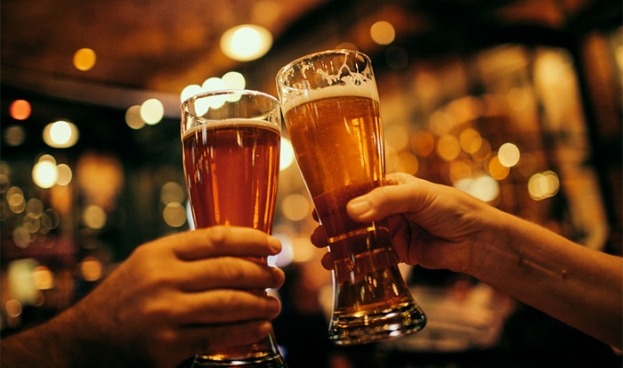I’m not sure about the future of democracy, but I do believe in moments of democracy.
A moment of democracy may last only for five seconds, but its memory lingers in our imaginations for many weeks, a year, or a lifetime. It is a moment when we hear others on their own terms, for their own sakes. Even as we may find some of their attitudes -- about race and class and gender, for example -- completely reprehensible. Even as we may disagree completely with their politics. Even as we may sense in them a hostility, an anger, that frightens us. We may sense that beneath the anger there is a pain, but we don’t know what it is. We know their rage but not their pain.
I’m guessing that you’ve had many moments of democracy in your life, and I have as well. One of them came several years ago when I was at a local restaurant and bar in the foothills of the Ozarks where I play music in an acoustic/pop band. A Vietnam veteran used to come hear us, and I noticed him smiling at some of the songs, especially if they were rhythm-and-blues. Those were the songs he’d grown up with and listened to during his time in the army.
Occasionally I would go over during a break and sit at his table briefly, just to get to know him. He smoked lots of cigarettes and always had a beer in hand. He had what seemed to me a kindly face that also carried a little pain. When we talked during breaks, I gradually discovered that his politics and outlook on life were completely different from mine; he was by all means on "the wrong side" of things. And his attitudes were intense! He said things I cannot repeat to you in this blog, because it would hurt you and might well lead you, from a distance, to hate him. I say this because, at one point, he began to respond in right-wing ways to posts I made on Facebook, which typically took a liberal turn, and he received immensely resentful responses from my liberal friends, for understandable reasons.
But in a live setting, things were a little different. Over time I asked him about his own experience. I learned that he was in almost constant pain from shrapnel in his body and that he’d had a terrible time getting help from "the government." And of course he lost many good friends in the war. I began to at least glimpse the pain behind the anger. But this learning was not the moment of democracy I want to emphasize here.
The moment came when, after our band sang "My Girl" by The Temptations one night, he got up from his table, ambled over (with a limp), put out his hand and said: "Now it doesn’t get any better than that, does it?" I felt his hand on mine and I knew it was an attempt to reach out to me through something he loved: namely the music.
In that moment he was talking about the song itself: its melodies and rhythms and harmonies. His outreached hand and his words were, and remain for me, a moment of democracy. The music itself transported us out of any hostility we might feel toward one another, and into something beautiful, and we knew it. Not simply an intellectual knowing but an emotional knowing. It was, in the language of the Alphabet of Spiritual Literacy, a moment of connection through beauty.
To this day I find hope in that moment. No, we did not end up best friends. No, I am quite sure he is still angry and would find my own politics repulsive. Yes, and sadly, I’m sure he still says hateful things that make me cringe. But yes, and happily, we recognized, in that moment, a shared humanity, by feeling connected to what felt beautiful: "I Got Sunshine on a Cloudy Day."
So I recommend two practices: remembering and creating moments of democracy, as best you can. As the election season unfolds and the rancor increases, remember moments of democracy when you and someone on the other side jointly made connection through something beautiful. It need not be music (though that’s a pretty good one). It can be nature, or animals, or children, or food. It may have happened in a restaurant/bar, too, where, in the moment, everyone is at the same level. And as time allows, try creating contexts for moments of democracy, too. Avoid what divides you along the lines of race, class, gender, economics. Just for a moment let the other person be, well, a human being, and let yourself be one as well. Only after the shared joy can there be further conversation. Always return to the joy when things threaten to break down. Call it the practice of shared joy. It won’t change the world, but it might really help you make it through a troubled time, adding hope to the world in a way that's meaningful to you.

 Moments of Democracy
Moments of Democracy